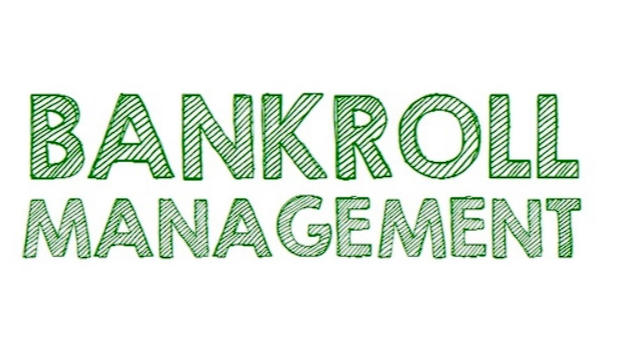In the world of sports betting, effective bankroll management is crucial for long-term success and sustainability. Whether you are a seasoned bettor or just starting out, understanding and implementing sound bankroll management strategies can help you avoid common pitfalls and maximize your winnings. This guide will explore the importance of bankroll management, provide practical tips, and highlight strategies to help you manage your betting funds effectively.
Understanding Bankroll Management
Bankroll management refers to the systematic approach of managing your betting funds to ensure longevity and profitability. It involves setting aside a specific amount of money for betting purposes and adhering to a structured plan for placing bets. Effective bankroll management helps you:
- Avoid Overbetting: Prevents you from betting more than you can afford to lose.
- Minimize Risk: Reduces the risk of financial ruin by spreading your bets across multiple events.
- Maximize Profits: Enhances your chances of making consistent profits over time.
Setting Up Your Bankroll
The first step in effective bankroll management is setting up your bankroll. Here are some key considerations:
Determine Your Bankroll Size
- Assess Your Finances: Evaluate your financial situation and determine how much money you can comfortably set aside for betting.
- Separate Funds: Keep your betting bankroll separate from your daily expenses and savings.
- Realistic Goals: Set realistic goals for your bankroll size based on your betting frequency and risk tolerance.
Establish a Betting Unit
A betting unit is a fixed percentage of your bankroll that you use for each bet. This helps you maintain consistency and control over your betting activities.
- Unit Size: Typically, a betting unit is between 1% and 5% of your total bankroll.
- Adjustment: Adjust your unit size based on your bankroll’s performance and your risk tolerance.
- Consistency: Stick to your unit size regardless of wins or losses to maintain discipline.
Practical Bankroll Management Tips
Implementing practical bankroll management tips can help you stay on track and make informed betting decisions.
Avoid Chasing Losses
Chasing losses is a common mistake that can lead to financial ruin. Instead of trying to recoup losses by increasing your bets, follow these tips:
- Stick to Your Plan: Adhere to your betting unit and bankroll management plan.
- Take Breaks: Step away from betting if you experience a losing streak to clear your mind and reassess your strategy.
- Learn from Mistakes: Analyze your losses to identify patterns and improve your betting approach.
Diversify Your Bets
Diversifying your bets helps spread risk and increases your chances of making consistent profits.
- Multiple Sports: Bet on a variety of sports to diversify your portfolio.
- Different Markets: Explore different betting markets within each sport to find value bets.
- Balanced Approach: Maintain a balanced approach by allocating your bankroll across various bets and markets.
Monitor and Adjust
Regularly monitoring and adjusting your bankroll management strategy is essential for long-term success.
- Track Performance: Keep a record of your bets, wins, and losses to track your performance.
- Review Strategy: Periodically review your bankroll management strategy to identify areas for improvement.
- Adapt: Be willing to adapt your strategy based on your performance and market conditions.

Advanced Bankroll Management Strategies
As you gain more experience, you can explore advanced bankroll management strategies to enhance your betting success.
Kelly Criterion
The Kelly Criterion is a mathematical formula used to determine the optimal bet size based on the edge and odds of a bet.
- Formula: Bet Size = (Edge * Odds – 1) / (Odds – 1)
- Edge: The advantage or value of a bet.
- Odds: The odds offered by the bookmaker.
- Application: Use the Kelly Criterion to calculate the optimal bet size for each bet based on your edge and the odds.
Progressive Betting
Progressive betting involves increasing your bet size after a win and decreasing it after a loss. This strategy aims to capitalize on winning streaks while minimizing losses during losing streaks.
- Positive Progression: Increase your bet size after a win (e.g., Paroli system).
- Negative Progression: Increase your bet size after a loss (e.g., Martingale system).
- Caution: Be aware of the risks associated with progressive betting, especially negative progression, which can lead to significant losses.
Fixed Profit Betting
Fixed profit betting involves setting a fixed profit target for each betting session and adjusting your bet size to achieve that target.
- Profit Target: Determine a fixed profit target for each session.
- Bet Size Adjustment: Adjust your bet size based on your progress towards the profit target.
- Discipline: Maintain discipline by sticking to your profit target and avoiding the temptation to chase losses.
Common Bankroll Management Mistakes to Avoid
Even with the best intentions, bettors can fall into common bankroll management mistakes. Being aware of these pitfalls can help you avoid them and stay on track.
Overconfidence
Overconfidence can lead to impulsive betting decisions and overbetting. To avoid this:
- Stay Humble: Recognize that betting involves risk and uncertainty.
- Stick to Your Plan: Adhere to your bankroll management plan regardless of recent wins.
- Seek Feedback: Consult with other bettors or experts to gain different perspectives.
Emotional Betting
Emotional betting can cloud your judgment and lead to poor decision-making. To manage your emotions:
- Set Clear Goals: Establish clear betting goals and stick to them.
- Take Breaks: Step away from betting if you feel emotionally charged.
- Practice Mindfulness: Stay mindful of your emotions and their impact on your betting decisions.
Lack of Discipline
A lack of discipline can derail your bankroll management efforts. To maintain discipline:
- Follow Your Plan: Stick to your bankroll management plan and betting unit size.
- Avoid Tilt: Resist the temptation to increase your bets after a loss.
- Stay Consistent: Maintain consistency in your betting approach and avoid impulsive decisions.
Conclusion
Effective bankroll management is a cornerstone of successful sports betting. By setting up your bankroll, establishing a betting unit, and implementing practical tips and advanced strategies, you can enhance your chances of long-term success and profitability. Avoiding common mistakes and maintaining discipline are essential for staying on track and making informed betting decisions. With a well-managed bankroll, you can enjoy the betting experience while minimizing risk and maximizing your winnings.







